7 Fast-Food Chains Hit Hard by New Tariffs
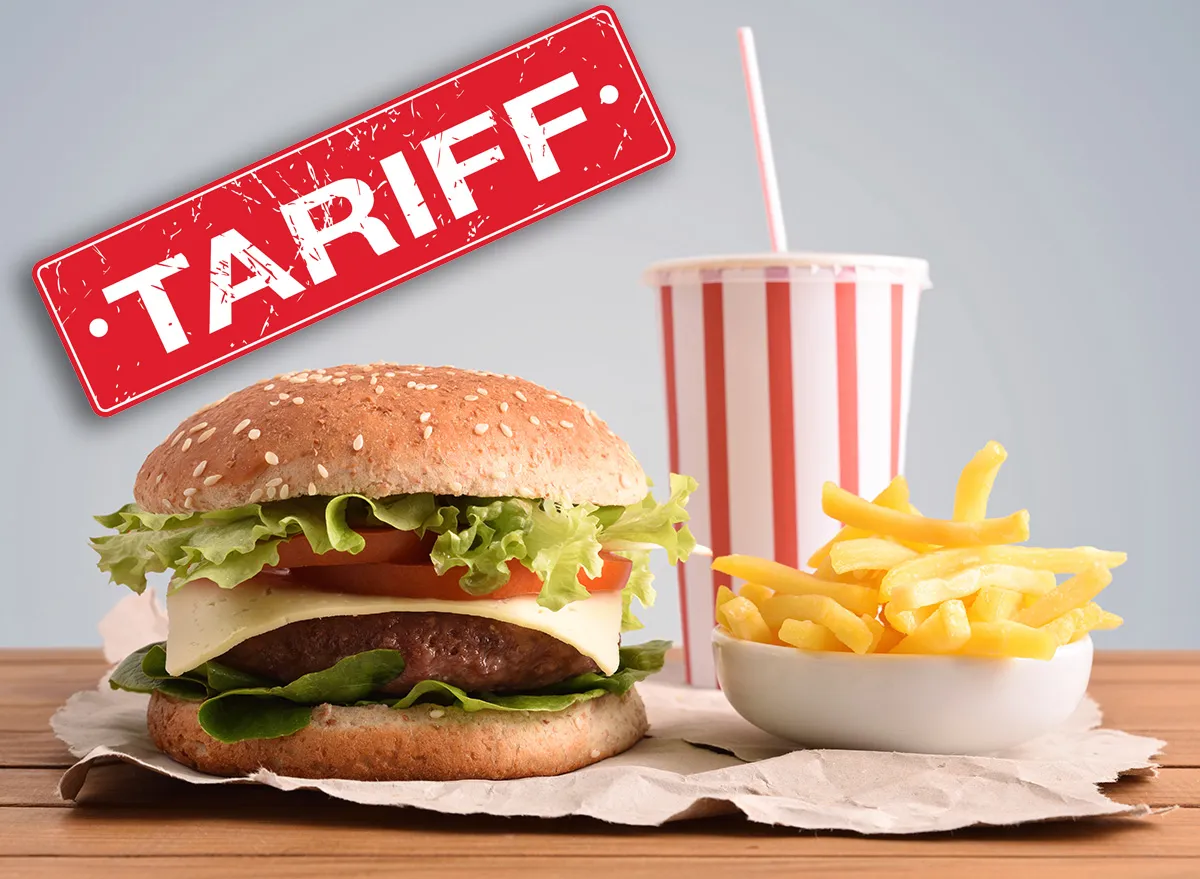
President Trump's "Liberation Day" tariffs went into effect on Wednesday, April 2, and U.S. shoppers are expecting some of their grocery bills to possibly be impacted as a result—but what about fast food chains? Many restaurants source their ingredients from overseas, including countries that have been hit with the new reciprocal tariffs. This means the price of fast food, already costlier than ever, could go up as a result, and stay that way for a while. Here are seven fast food chains that may hike prices due to the new tariffs.
McDonald's
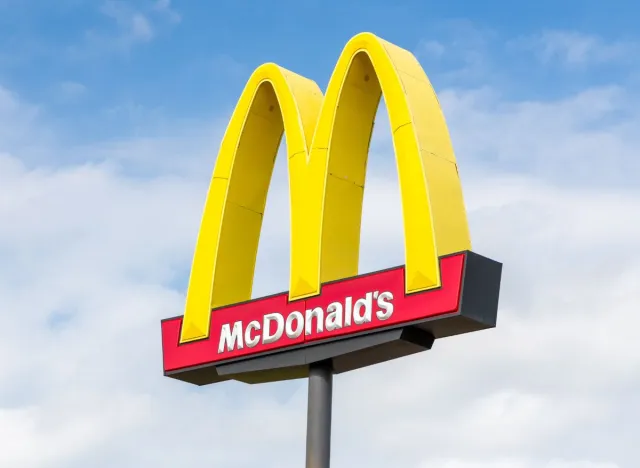
McDonald's sources beef from countries like Australia, which has been hit with a 10% tariff. "To support forest-positive beef sourcing, we have a Deforestation-Free Beef Procurement Policy (DFBPP), which includes detailed requirements for beef sourced from Brazil, Paraguay, Argentina and Australia," the company explains on its sourcing information page.
Subway
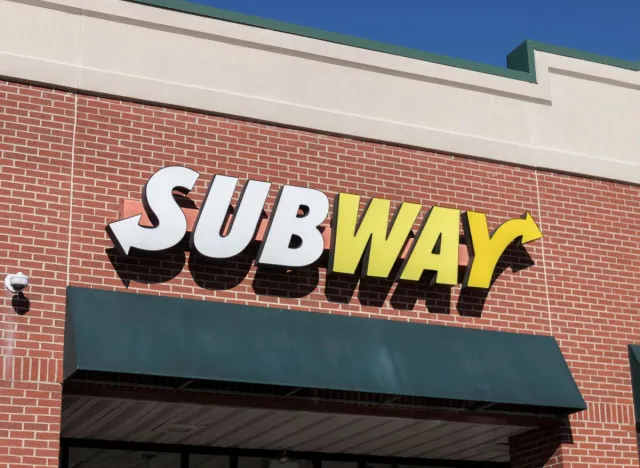
Subway sources some produce like bell peppers from Canada, which has been hit with a 25% tariff. The sandwich chain also sources produce from Mexico and Guatemala, which have been hit with 25% and 10% tariffs respectively.
Wendy's
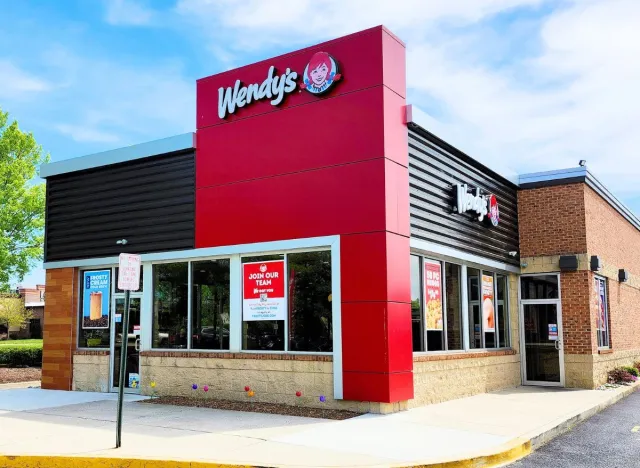
Wendy's sources beef from within the United States, but uses palm oil both domestically and internationally. Palm oil is produced in countries like Indonesia, which is facing a 32% tariff. "Globally, Wendy's is not a large user of palm oil, but we recognize the importance of the issue and are committed to using responsible and sustainable sources for the palm oil we do use," the company says. "In the U.S. and Canada, palm oil is an ingredient in a few products like cookies and oatmeal bars."
Tim Hortons
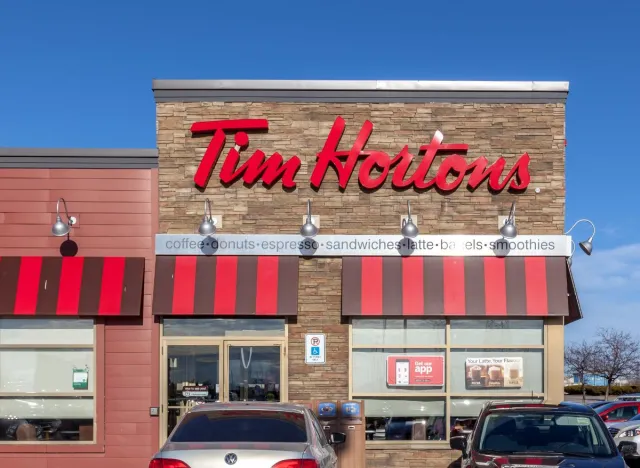
Tim Hortons sources coffee from places like Colombia and Guatemala, the latter of which is facing a 10% tariff. "The process of cultivating coffee in the rugged terrain of our producing countries is often an artisanal process. This is truly a labour of love and coffee grown with care," the company says.
Burger King
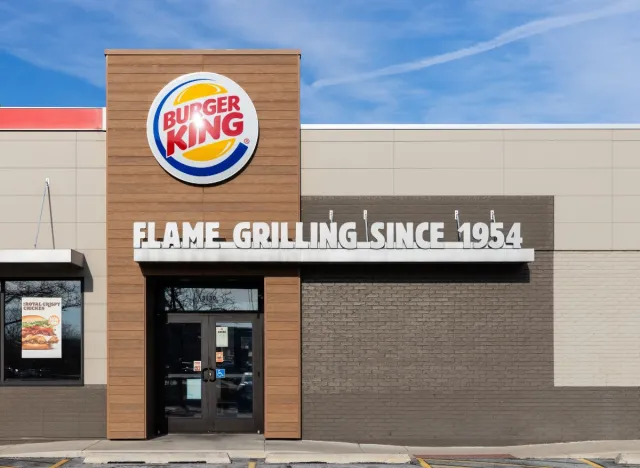
Burger King also sources some of its beef from Australia, which has been hit with a 10% tariff.According to Sky News Australia, the United States took almost 400,000 tonnes of Australian beef in 2024, and is expecting disruption to exports as a result. New Zealand is also a major supplier of beef to fast food restaurants in the U.S.
Chipotle
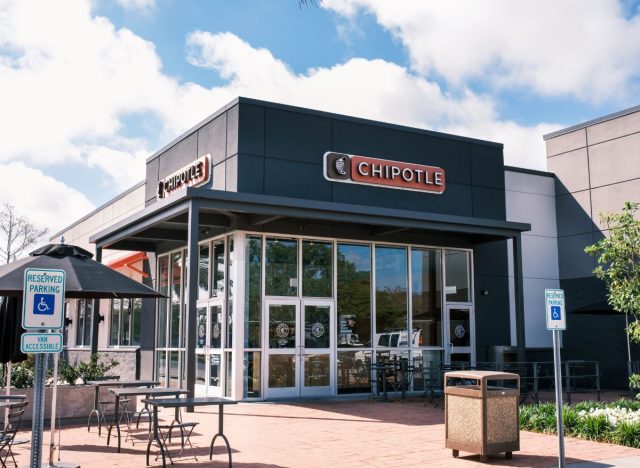
Chipotle's beef comes from the U.S., Canada (25%), Australia (10%), and Uruguay (10% tariff). "In 2022, none of the beef we sourced was conventionally raised, and 100% met our animal welfare standards. All of our beef comes from animals raised without added hormones or antibiotics," the company says.
Dunkin' Donuts
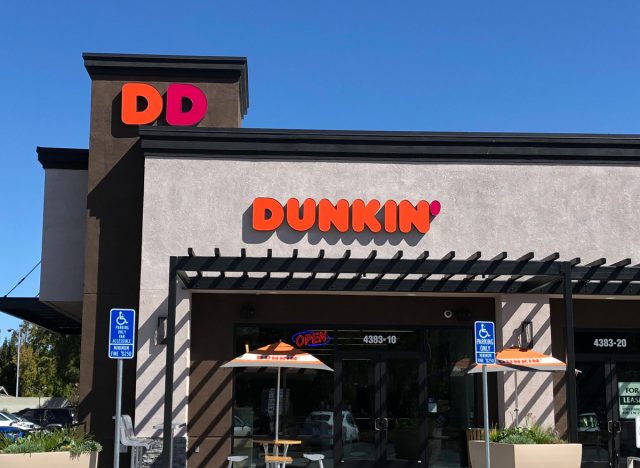
Dunkin' Donuts sources coffee from countries like Brazil, which is facing a 10% tariff, so your favorite Dunkin' coffee could get more expensive soon. "In addition to being committed to quality, we are also committed to sourcing coffee responsibly and incorporating certified products in our coffee portfolio. For example, our espresso beverages sold in the U.S. and internationally have used 100% certified coffee beans since 2004," the company says.









